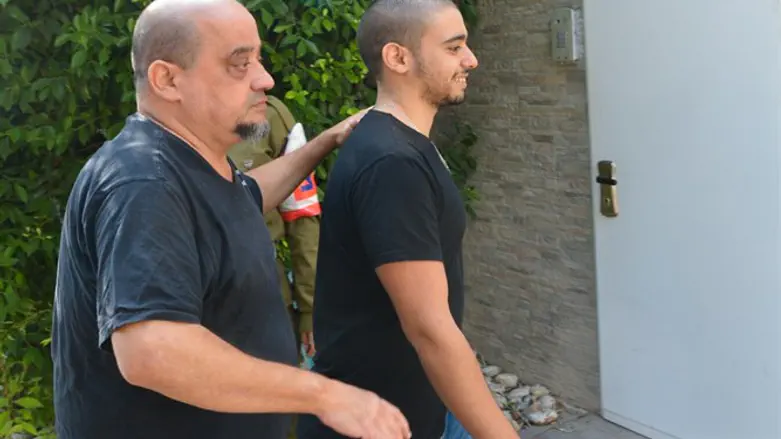
Will the IDF also deny Elor Azariya the release grant and personal deposit, which in his case could amount to more than 48,000 shekels, generally allotted to soldiers upon release from regular army service?
Israel Hayom reported that, although Azariya was released after three years of regular service, in practice his service was shorter than required, as he was held in open detention at the Kfir Brigade base for roughly half his service.
The head of the IDF Personnel Directorate, Major General Motti Almoz, will decide in September on Azariya's eligibility for the release grant and the personal deposit, as Almoz has authority to revoke Azaria's eligibility for financial benefits under the Discharged Soldiers Law.
In addition, the head of the Personnel Directorate will also be asked to decide whether Azariya is entitled to financial benefits in proportion to the amount he served besides the time during which he was in open detention, and also whether Azariya is entitled to the financial benefits generally entitled to combat soldiers.
Israel Hayom found that Azariya's name does not appear on the list of discharged soldiers that the IDF transferred to the Defense Ministry's Guidance Unit for Discharged Soldiers, which pays the release grant and personal deposit.
According to the IDF Spokesperson, “A decision has not yet been made about Elor Azariya’s eligibility for benefits according to the Discharged Soldiers Law. According to the law, a decision can only be made after a ruling in his matter is final.”
